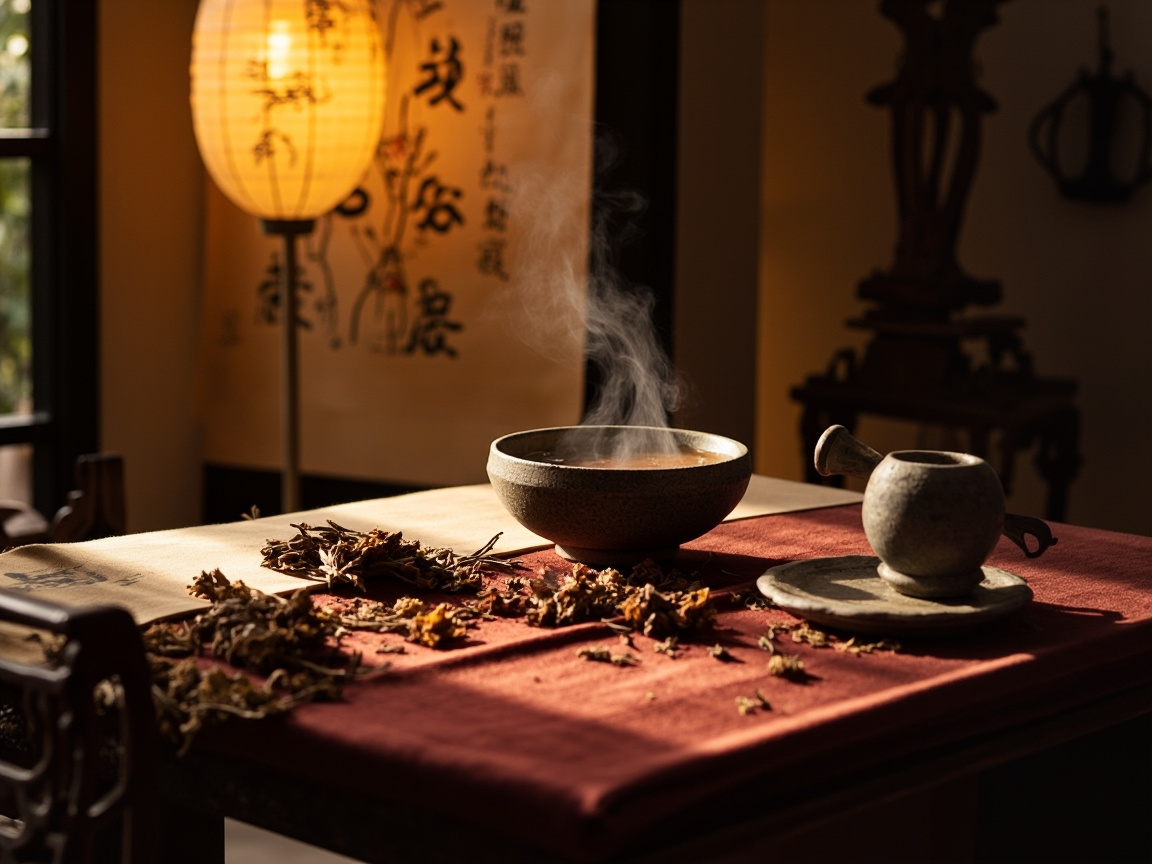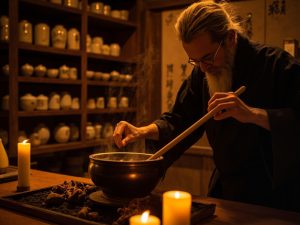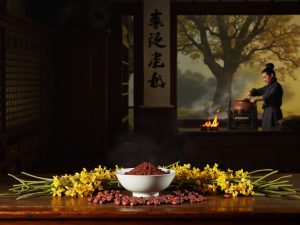Table of Contents
ToggleWu Zhu Yu Tang – Nan Kaiyang
Author: Nan Kaiyang Editor: Gu Yuxi Translator: Gu Yuxi
Article
Shang Han Lun
Yangming Chapter 243: If one desires to vomit upon eating grains, it pertains to Yangming; Wu Zhu Yu Tang is indicated. If symptoms worsen after taking the decoction, it pertains to the Upper Jiao.
Shaoyin Chapter 309: In Shaoyin disease, with vomiting and diarrhea, cold hands and feet, vexation, and desire to die; Wu Zhu Yu Tang is indicated.
Jueyin Chapter 378: If there is dry heaving, spitting foamy saliva, and headache; Wu Zhu Yu Tang is indicated.
Pathogenesis:
Liver Yang Deficiency: The Liver is a “rigid organ” . Coldness in the Liver signifies Liver Yang deficiency.
Differentiation:
For Yangming deficiency-cold, Li Zhong Tang warms it. However, this entry selects Wu Zhu Yu Tang to warm the Liver and dispel cold, indicating that the pathogenesis is not deficiency-cold of the Middle Jiao, but rather cold generated by Liver Yang deficiency, with the cold rebellious qi invading the Stomach.
Understanding of the Clauses:
Clause 378: Its pathogenesis is due to exuberant Liver Yang deficiency invading the Stomach, causing rebellious Stomach Qi to result in dry heaving. Prolonged cold qi ascending leads to spitting foamy saliva. When it ascends to the crown of the head, it causes headache. At its root, these various symptoms arise from internal generation of Liver Yang deficiency-cold.
Although Clause 309 presents signs of a dangerous Shaoyin condition with depleted Yang Qi, where Si Ni Tang might be insufficient for rescue, its underlying cause is still Liver Yang deficiency-decline and internal generation of Yin-cold, affecting various organs. Invading the Stomach causes vomiting, invading the Spleen causes diarrhea, and invading the Heart causes vexation. Using Wu Zhu Yu Tang warms Liver Yang, treating the root cause of the disease, and all symptoms are eliminated.
Classic Characteristics of Wu Zhu Yu Tang:
1.Headache is pain at the crown of the head, with excessive saliva.
2.In Yin syndrome with vomiting and diarrhea, vomiting is the primary symptom, and vexation is restlessness.
Appendix: Records of Medicinal Effects
In Shen Nong Ben Cao Jing (The Divine Farmer’s Materia Medica), it is stated that Gui Zhi (Cinnamon Twig) “treats vomiting and gasping” (治吐吸), referring to the symptom of the Kidneys failing to grasp Qi. Gui Zhi can open up the Kidney Yang. For example, in Gui Zhi Long Gu Mu Li Tang, Tian Xiong San, Gui Gan Long Gu Mu Li Tang, and Shen Qi Wan, Rou Gui (Cortex Cinnamomi) is used to open Kidney Yang and guide fire back to its source.
Opening up Heart Yang is the foremost function of Gui Zhi in invigorating Yang. Gui Zhi and Gan Cao (Licorice Root) are primary herbs for calming surging qi and palpitations, but their combination varies, and so do their indications. Gui Zhi, Gan Cao, and Fu Ling are for palpitations with restlessness. Gui Zhi, Gan Cao, Long Gu (Dragon Bone), and Mu Li (Oyster Shell) are for palpitations with fright. Gui Zhi, Gan Cao, Ren Shen (Ginseng), and Mai Dong (Ophiopogon Root) are for palpitations due to deficiency. Gui Zhi, Gan Cao, and Wu Wei Zi (Schisandra Berry) are for coughing and gasping with palpitations.
Disclaimer:
The experiences and insights shared above represent the author’s personal usage and understanding, and are provided for reference only as part of academic exchange. Please do not blindly replicate or apply them; any consequences arising from such actions are solely your responsibility. As individual constitutions vary, medication should be tailored accordingly. It is advisable to use such treatments under the guidance of a qualified physician. If you have additional experiences to share, comments and submissions are welcome.
If you appreciate my article, please give it a like.
If you are a generous and affluent individual, please consider making a donation!
Your recognition is my greatest motivation to continue writing—thank you very much!
USD Donation Button —
A RMB donation button is available below.
 微信赞赏
微信赞赏 支付宝赞赏
支付宝赞赏




